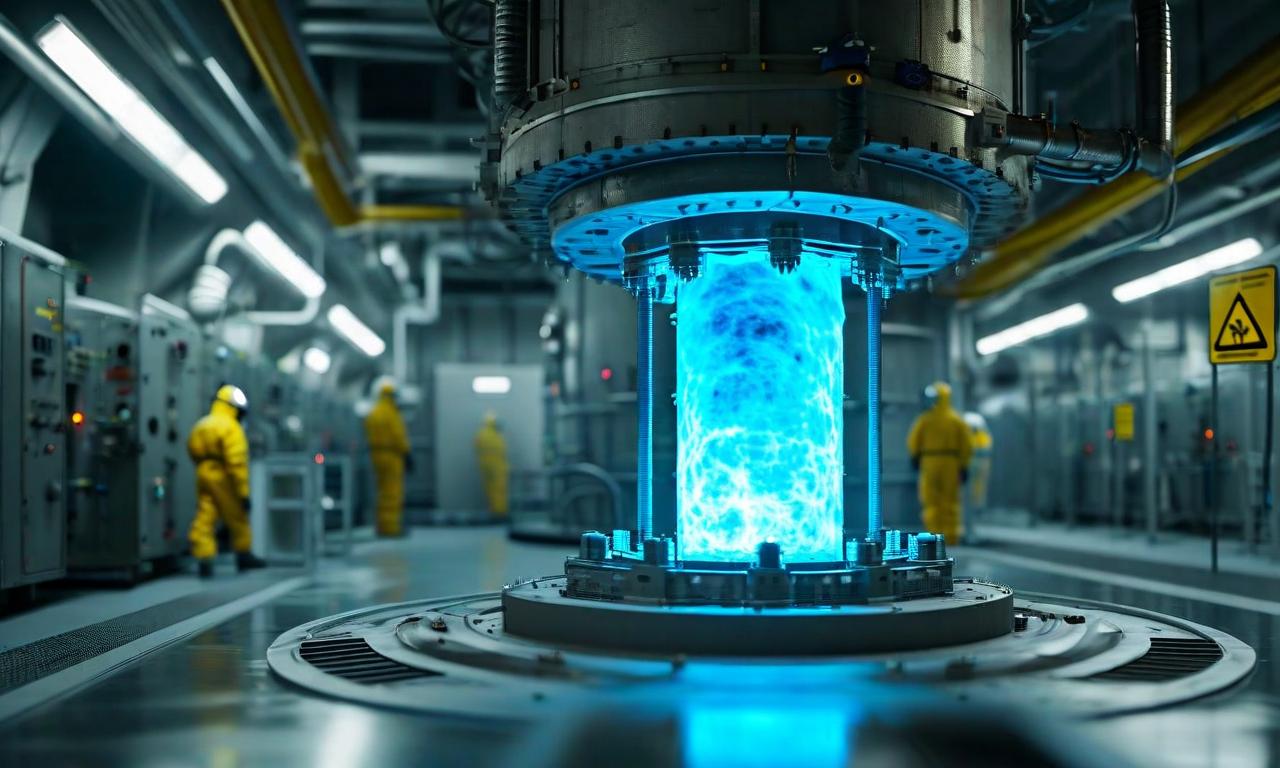Iran Blocks Nuclear Inspections, Prompting UN-US Crisis Talks Over Missing Uranium
IAEA officials are set to engage in urgent discussions with the US next week due to Iran's obstruction of nuclear inspections. Iran expelled IAEA inspectors during a conflict with Israel in June, ending international oversight of its nuclear activities. Concerns have risen over 409 kilograms of highly-enriched uranium moved to an undisclosed location. Iran cites hazards at bombed sites for blocking inspections but suggests possible visits to unaffected areas. European powers threaten UN sanctions if Iran doesn't resume negotiations and allow inspections by August's end. Iran remains defiant, dismissing sanction threats and suggesting potential withdrawal from the Nuclear Non-Proliferation Treaty. The IAEA faces budget deficits and may need to reassign workers due to financial challenges.

*this image is generated using AI for illustrative purposes only.
In a significant escalation of tensions surrounding Iran's nuclear program, International Atomic Energy Agency (IAEA) officials are set to engage in crisis talks with the United States next week. The urgent discussions come in response to Iran's continued obstruction of nuclear inspections, raising international concerns about the oversight of the country's nuclear activities.
Expulsion of IAEA Inspectors
The crisis began during a 12-day conflict between Iran and Israel in June, which resulted in Iran expelling IAEA inspectors. This move effectively terminated international oversight of Iran's nuclear program, leaving the global community in the dark about the country's nuclear activities.
Missing Highly-Enriched Uranium
Of particular concern is the whereabouts of 409 kilograms of highly-enriched uranium. Iran has reportedly moved this material to an undisclosed location, further complicating the IAEA's ability to monitor and verify the country's nuclear stockpile.
Iran's Justification and Limited Access
Iran has cited chemical and radiological hazards at bombed sites as the reason for blocking inspections. However, the country has suggested that visits to unaffected sites may be possible, though the extent and terms of such access remain unclear.
Previous Inspection Regime
Prior to the current crisis, the IAEA maintained a robust inspection program in Iran:
| Inspection Details | Numbers |
|---|---|
| Number of Inspections | Nearly 500 |
| IAEA Workers Involved | 274 |
These inspectors were responsible for maintaining detailed records of Iran's uranium inventory, providing crucial transparency to the international community.
International Response and Sanctions Threat
European powers have taken a firm stance on the issue, threatening to reinstate UN sanctions if Iran fails to resume negotiations and allow inspections by the end of August. This ultimatum underscores the gravity of the situation and the international community's determination to maintain oversight of Iran's nuclear activities.
Iran's Defiance and NPT Threat
In response to the sanctions threat, Iran has remained defiant. The country has dismissed the possibility of sanctions and has gone so far as to suggest it could withdraw from the Nuclear Non-Proliferation Treaty (NPT), a move that would have far-reaching implications for global nuclear non-proliferation efforts.
IAEA's Financial Challenges
The ongoing crisis has placed significant strain on the IAEA's resources. The agency is currently facing budget deficits and may need to reassign workers due to financial difficulties in maintaining its monitoring mission in Iran.
As tensions continue to mount, the outcome of the upcoming crisis talks between IAEA officials and the US will be crucial in determining the future of international oversight of Iran's nuclear program and the broader implications for global nuclear non-proliferation efforts.
























